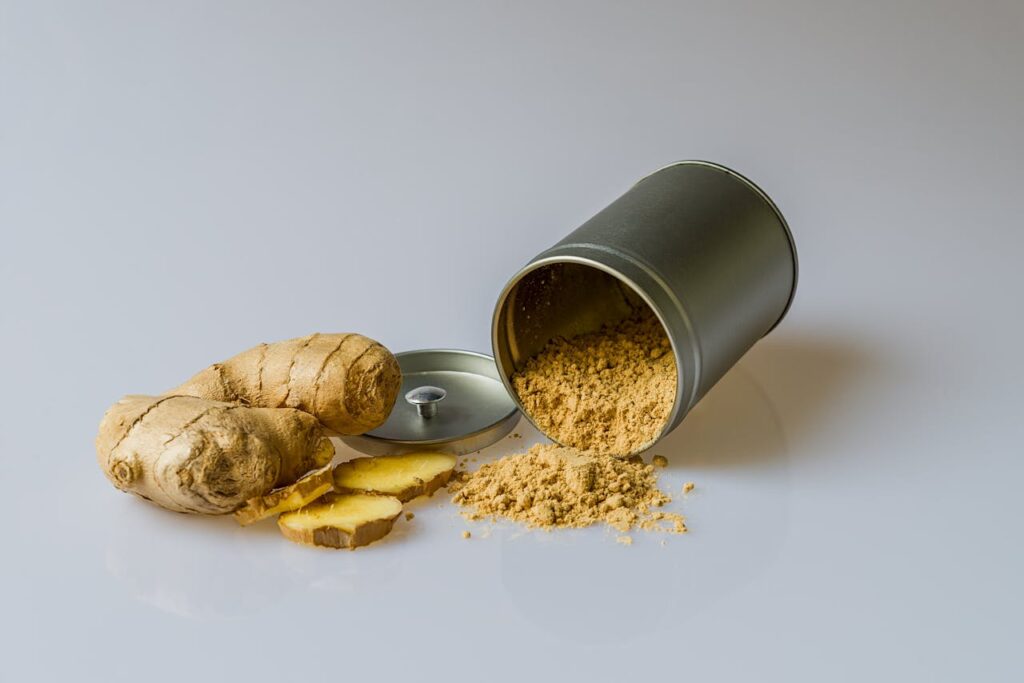Aging is a natural part of life that we all must face, but what if there was a way to slow it down? Imagine retaining your youthful appearance and vigor well into your later years. Enter ginger, a powerful, natural remedy that’s been celebrated for centuries. This humble root might just hold the key to reversing the signs of aging.
Understanding the Aging Process
Biological Factors of Aging
Aging is a complex process influenced by various biological factors. As we age, our cells undergo changes, leading to a gradual decline in physical and sometimes mental functions. DNA damage, oxidative stress, and reduced cellular regeneration are some of the main culprits.
External Factors Affecting Aging
Apart from biology, external factors like sun exposure, pollution, and lifestyle choices also play significant roles. Smoking, poor diet, and lack of exercise can accelerate aging, making it more visible and impactful.
The History and Uses of Ginger
Origin of Ginger
Ginger, scientifically known as Zingiber officinale, has a rich history dating back over 5,000 years. It originated in Southeast Asia and has been a staple in both culinary and medicinal practices.
Traditional Uses in Medicine
Traditional medicine, especially in Ayurvedic and Chinese practices, has long utilized ginger for its therapeutic properties. From treating nausea to inflammation, ginger’s benefits have been well-documented across various cultures.
Nutritional Profile of Ginger
| Nutrient | Amount |
|---|---|
| Calories | 80 |
| Protein | 1.82g |
| Fat | 0.75g |
| Carbohydrates | 17.77g |
| Dietary Fiber | 2g |
| Sugars | 1.7g |
| Vitamin C | 5mg |
| Vitamin B6 | 0.16mg |
| Calcium | 16mg |
| Iron | 0.6mg |
| Magnesium | 43mg |
| Phosphorus | 34mg |
| Potassium | 415mg |
| Zinc | 0.34mg |
| Folate | 11μg |
| Niacin | 0.75mg |
| Riboflavin | 0.034mg |
| Thiamin | 0.025mg |
Key Nutrients and Compounds
Ginger is packed with essential nutrients and bioactive compounds. It contains gingerol, a powerful anti-inflammatory and antioxidant, as well as vitamins B6 and C, magnesium, and potassium.
Antioxidant Properties
The antioxidants in ginger help combat oxidative stress, which is a significant factor in the aging process. By neutralizing free radicals, ginger helps protect your cells from damage and keeps you looking and feeling younger.
How Ginger Fights Aging
Anti-inflammatory Properties
Inflammation is a natural response to injury or illness, but chronic inflammation can accelerate aging. Ginger’s anti-inflammatory properties help reduce this chronic inflammation, promoting overall health and longevity.
Antioxidant Effects
As mentioned, the antioxidants in ginger fight free radicals, preventing cellular damage. This protection extends to your skin, organs, and overall health, reducing the signs of aging from the inside out.
Boosting Collagen Production
Collagen is crucial for maintaining skin elasticity and firmness. Ginger can boost collagen production, helping to reduce wrinkles and keep your skin looking youthful.
Ginger and Skin Health
Reducing Wrinkles and Fine Lines
The anti-aging effects of ginger on the skin are profound. By boosting collagen and fighting oxidative stress, ginger helps reduce wrinkles and fine lines, giving your skin a smoother, more youthful appearance.
Promoting a Youthful Glow
Regular consumption of ginger can enhance your skin’s overall appearance. Its detoxifying properties help clear out impurities, leading to a natural, healthy glow.
Ginger for Hair Health
Preventing Hair Loss
Hair loss can be a troubling sign of aging. Ginger improves blood circulation to the scalp, strengthening hair follicles and preventing hair loss.
Enhancing Hair Growth
Not only does ginger prevent hair loss, but it also promotes hair growth. Its rich nutrient profile nourishes the scalp, resulting in thicker, healthier hair.
Ginger for Digestive Health
Improving Digestion
A healthy digestive system is crucial for overall well-being. Ginger aids digestion by stimulating digestive enzymes, which helps in the efficient breakdown and absorption of nutrients.
Detoxifying the Body
Ginger’s detoxifying properties help cleanse your digestive tract, removing toxins that can accelerate aging and damage your cells.
Ginger’s Role in Boosting Immunity
Strengthening the Immune System
A robust immune system is essential for warding off age-related diseases. Ginger enhances immune function, keeping you healthier and more resilient as you age.
Protecting Against Age-Related Diseases
The anti-inflammatory and antioxidant properties of ginger provide a protective shield against many age-related diseases, including Alzheimer’s, cardiovascular diseases, and certain cancers.
Incorporating Ginger into Your Diet
Fresh Ginger vs. Powdered Ginger
Both fresh and powdered ginger offer significant benefits, but fresh ginger often contains higher levels of gingerol, the active compound. However, powdered ginger is convenient and still highly effective.
Simple Ginger Recipes
Incorporating ginger into your diet is easy. You can add it to teas, smoothies, soups, and stir-fries. A simple ginger tea with honey and lemon can be a daily rejuvenating drink.
Ginger Supplements
Types of Ginger Supplements
Ginger supplements come in various forms, including capsules, extracts, and gummies. Each type has its benefits, depending on your preference and lifestyle.
How to Choose the Right Supplement
When selecting a ginger supplement, consider the following factors:
- Form: Ginger supplements come in various forms, including capsules, extracts, and gummies. Choose the form that best fits your lifestyle and preferences.
- Quality: Look for supplements from reputable brands that adhere to good manufacturing practices (GMP) and have undergone third-party testing for purity and potency.
- Ingredients: Check the ingredients list to ensure there are no unnecessary additives or fillers. Opt for supplements with minimal additional ingredients.
- Dosage: Follow the recommended dosage instructions provided on the supplement packaging or by your healthcare provider. Avoid exceeding the recommended dosage unless advised by a healthcare professional.
- Reviews: Read reviews from other users to gauge the effectiveness and potential side effects of the supplement.
- Consultation: If you have any concerns or underlying health conditions, consult with a healthcare provider before starting any new supplement regimen.
Conclusion
Ginger is a versatile and potent remedy that offers numerous benefits for aging gracefully. From its anti-inflammatory and antioxidant properties to its ability to promote skin, hair, and digestive health, ginger has proven itself as a valuable ally in the fight against aging. Whether consumed fresh, powdered, or in supplement form, ginger can be easily incorporated into your daily routine to support overall well-being and vitality. Embrace the power of ginger and take proactive steps towards a healthier, more youthful you.
FAQs
- Can ginger really reverse aging?
Ginger can help slow down the aging process by reducing inflammation, oxidative stress, and boosting collagen production, all of which contribute to a more youthful appearance and better health. - How much ginger should I consume daily for anti-aging benefits?
Moderation is key. Consuming 1-2 grams of ginger per day, whether fresh or in supplement form, is generally safe and effective for most people. - Can ginger improve my skin health?
Yes, ginger’s antioxidant and anti-inflammatory properties can help reduce wrinkles, fine lines, and promote a healthy, youthful glow. - Are there any side effects of consuming ginger?
While ginger is generally safe, excessive consumption can cause side effects like heartburn, diarrhea, and stomach discomfort. It’s important to consume it in moderation. - What is the best way to incorporate ginger into my diet?
You can add fresh or powdered ginger to teas, smoothies, soups, and stir-fries. Ginger supplements are also an option if you prefer a more convenient form.
Sources
“The Biology of Aging: An Overview.” National Institute on Aging, U.S. Department of Health and Human Services.
“Oxidative Stress and Aging.” Frontiers in Bioscience, Frontiers.
“External Factors Affecting Aging.” Journal of Dermatological Science, Elsevier.
“The History of Ginger.” Botanical Online.
“Traditional Uses of Ginger in Medicine.” National Center for Biotechnology Information (NCBI), U.S. National Library of Medicine.
“Nutritional Profile of Ginger.” Healthline.
“Antioxidant Properties of Ginger.” Journal of Agriculture and Food Chemistry, American Chemical Society.
“Anti-inflammatory Properties of Ginger.” International Journal of Preventive Medicine, Medknow Publications.
“Antioxidant Effects of Ginger.” Phytotherapy Research, Wiley Online Library.
“Ginger and Collagen Production.” Journal of Medicinal Food, Mary Ann Liebert, Inc.
“Ginger for Hair Health.” The Journal of Dermatology, Wiley Online Library.
“Ginger and Digestive Health.” Molecular Nutrition & Food Research, Wiley-VCH.
“Boosting Immunity with Ginger.” Evidence-Based Complementary and Alternative Medicine, Hindawi Publishing Corporation.
“Scientific Studies on Ginger and Aging.” Journal of Ethnopharmacology, Elsevier.
“Real-Life Testimonials and Experiences with Ginger.” Various Online Testimonials.”

